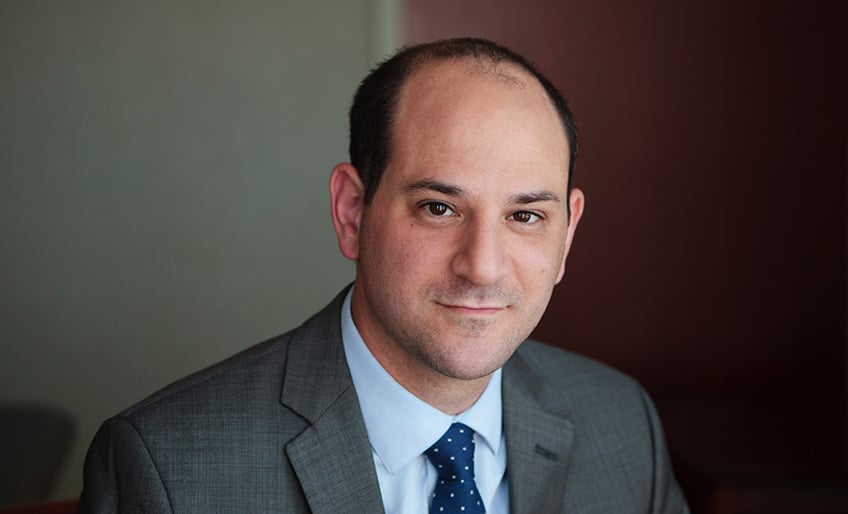
By: Daniel Aruch, MD, oncologist at Virginia Oncology Associates
A Promising Era for Immunotherapy in Cancer Treatment
It’s an exciting time for oncologists as numerous advances in immunotherapy allow us to offer more treatment options and greater hope to our patients. In the treatment of advanced blood cancers, chimeric antigen receptor (CAR) T-cell therapy is offering meaningful, long-lasting results. CAR T-cell therapy is currently approved in acute lymphoblastic leukemia (ALL) and diffuse large B-cell lymphoma (DLBCL).
What Is CAR T-Cell Therapy and How Does It Work?
This innovative therapy uses the patient’s own T-cells, modified in a lab, to attack and fight cancer. First, the T-cells are drawn from the patient and sent to a lab capable of engineering the cells to attack cancerous B cells. This process can take two to three weeks.
Finally, patients must receive the infusion of engineered T-cells in a closely monitored setting, often requiring intensive care unit support, as the treatment can release cytotoxins that may cause fever, low blood pressure, and respiratory failure. Patients must stay in the hospital for monitoring for at least one week, allowing any side effects to be carefully managed.
High Success Rates Offer Hope to Blood Cancer Patients
The rewards for this treatment also outweigh the risks in most cases. Many of these patients, including approximately 80% of patients with ALL and 50% of patients with DLBCL, have a response to therapy. Because T-cells continue to live within the body, some patients are actually cured of their cancer, even when all other treatment options have failed. Though the treatment is less effective for DLBCL, it can still extend survivorship and offer durable remission to some patients. Many patients continue to see a response for years after treatment.
Who Is Eligible for CAR T-Cell Therapy?
Currently, CAR T-cell therapy has several restrictions. Because of the possibility of severe side effects, it is only appropriate for younger patients, including children, young adults, and teens though increasingly being studied to select older adults, even those over age 65. It’s also only approved in patients who have not responded to more traditional chemotherapy treatment. The treatment is only approved for the two types of cancer mentioned above, though clinical trials are underway to study its effectiveness in other hematologic malignancies as well as solid tumors. CAR T-cell therapy is also expensive, costing half a million dollars or more per administration. Driving these costs down and increasing insurance coverage will be vital to help offer this promising treatment to patients in the future.
Where to Access CAR T-Cell Therapy Near Hampton Roads
Because of the production, training and care requirements for this therapy, it’s currently only available at certain tertiary and academic cancer centers throughout the United States. Fortunately, Virginia Oncology Associates now offers CAR T-cell therapy as part of its advanced cancer treatment services in Hampton Roads. This means local patients may be able to receive this groundbreaking treatment closer to home, without needing to travel long distances.
Nearby academic centers such as Duke Cancer Institute, University of North Carolina, Virginia Commonwealth University, or University of Virginia Health System also offer this type of cancer treatment. However, with the addition of CAR T-cell therapy at VOA, access to the most advanced cancer care in our community continues to grow.
The Future of CAR T-Cell Therapy in Cancer Care
With time, it’s likely most of these limitations with disappear. The hope is that this treatment will be used for many types of cancer, including solid cancers like lung and pancreatic cancer, within the next five to ten years. With the help of our colleagues in pulmonology, cardiology, and critical care who will be key in helping manage side effects, more communities will be able to offer the care and monitoring required for the treatment.
Offering CAR T-cell therapy and other immunotherapies safely relies on teamwork from physicians across the healthcare spectrum to identify and manage side effects. As these treatments are offered to more patients, we must work to train and educate each other on how to ensure patients receive the care they need.
Thanks to rapidly evolving immunotherapy treatments, patients will have more treatment options over the next few decades than they’ve ever had before. Hospitals, administrators, and physicians alike must be ready to provide these treatments and offer long-term care for survivors.
Daniel Aruch, MD, is a board-certified and fellowship-trained medical oncologist and hematologist at our Princess Anne and Norfolk (Brock Cancer Center) offices.





